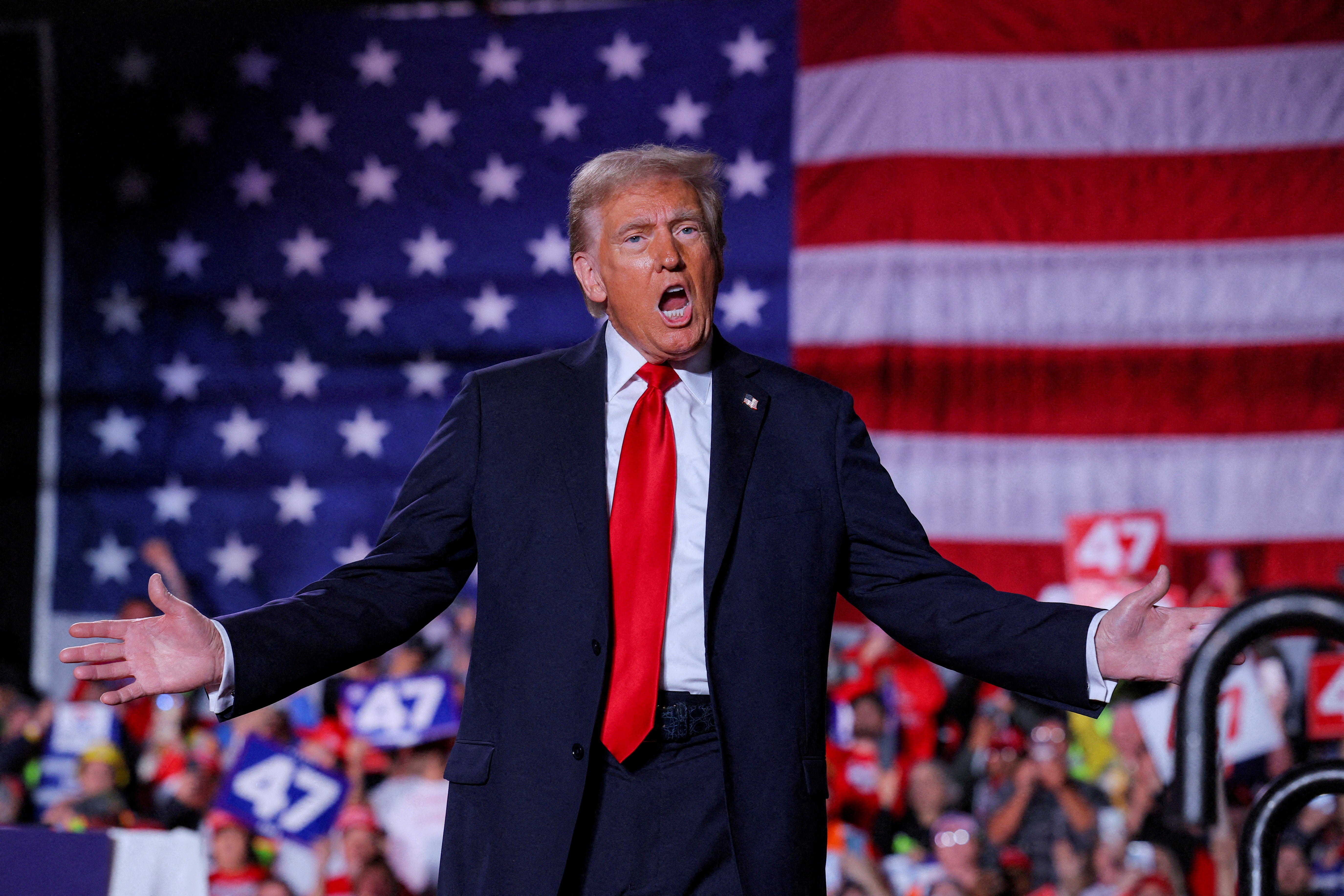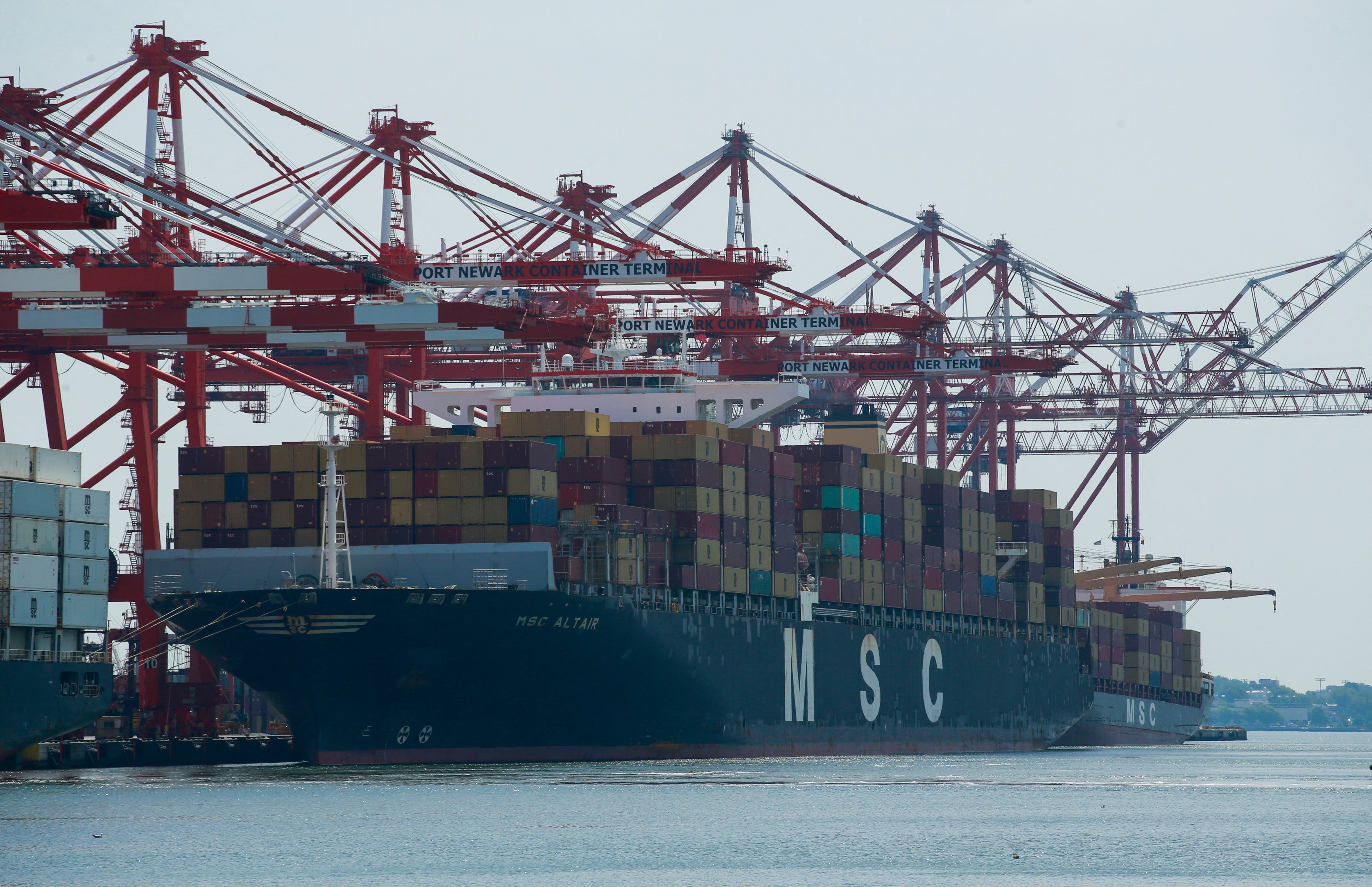Trump threatens China, Mexico and Canada with new tariffs. But what does this actually mean for Americans’ pockets?
On the campaign trail, Trump claimed to his supporters that tariffs are ‘not going to be a cost to you, it’s a cost to another country.’ Economists warn this isn’t the case
Your support helps us to tell the story
From reproductive rights to climate change to Big Tech, The Independent is on the ground when the story is developing. Whether it's investigating the financials of Elon Musk's pro-Trump PAC or producing our latest documentary, 'The A Word', which shines a light on the American women fighting for reproductive rights, we know how important it is to parse out the facts from the messaging.
At such a critical moment in US history, we need reporters on the ground. Your donation allows us to keep sending journalists to speak to both sides of the story.
The Independent is trusted by Americans across the entire political spectrum. And unlike many other quality news outlets, we choose not to lock Americans out of our reporting and analysis with paywalls. We believe quality journalism should be available to everyone, paid for by those who can afford it.
Your support makes all the difference.President-elect Donald Trump has announced plans to hike tariffs on products from China, Mexico and Canada to strong-arm them into cracking down on drug smuggling and illegal immigration into the U.S.
The three countries are America’s top trading partners but, on Monday, Trump threatened to sign an executive order imposing a 25 percent tariff on products from Canada and Mexico.
At the same time, he said he would bring in an additional 10 percent tariff on China until its government tackles fentanyl smuggling into the U.S.
The Republican is a longtime fan of tariffs. “To me, the most beautiful word in the dictionary is ‘tariff.’ And it’s my favorite,” Trump said at the Chicago Economic Club in October.
On the 2024 campaign trail, Trump repeatedly told his supporters that tariffs are “not going to be a cost to you, it’s a cost to another country.”
But that claim has been widely dismissed by economists. Before Election Day, the Bloomberg editorial board issued a warning that slammed the claim as a “popular delusion.”
So while Trump claims his tariffs plan will hurt U.S. trade partners, what does it actually mean for American consumers?
In reality, tariffs are paid to the federal government by the retailer or manufacturer importing the goods, not the country of origin.
So, while Trump’s drastic measures could help some businesses whose products are already made in America, economists have warned that the tariffs would significantly raise costs for U.S. companies and manufacturers who have to buy parts from abroad.
Faced with higher costs, American companies will have a couple of options: either absorb the costs into the business and take a smaller profit, or hit consumers by raising retail prices.

The Washington Post previously reported that higher prices would be passed on to the consumer, something that could be “particularly painful” for low-income Americans.
Catherine Rampell, a political and economic commentator for the the Post and CNN, warned that consumers are in for some “bad news” when it comes to Trump’s proposed tariffs.
“If you voted out the incumbent because you thought grocery prices were too high, I got some bad news from you,” Rampell posted on her Bluesky account on Monday following Trump’s announcement. “For example, 90% of our avocados come from Mexico. Guac is REALLY gonna cost extra.”
She added that the tariffs could also hit house prices due to the materials imported from Canada. “We import $105B in cement/lime/minerals and $28B in lumber/paper from Canada. We also *already* tariff that lumber to death,” Rampell wrote. “Expect construction costs to go through the roof.”
Meanwhile, Patrick DeHaan, an oil and gas analyst, warned that a 25 percent tariff on Canadian oil would hit consumer gas prices in the Great Lakes, the Midwest, and the Rockies which are major markets where refiners process oil from Canada.
“Higher #gasprices are coming, primarily for the Great Lakes states, Midwest and Rockies, if @realDonaldTrump does as he says he will and put tariffs on Canadian oil supplies coming into the U.S,” he warned on Bluesky. “Refiners can not simply process lighter oil overnight. It would take huge investments and years. More US supply wouldn’t help.”

In Trump’s first administration, the tariffs he imposed caused the price of washing machines, handbags, tires and other goods to rise for the consumer, a study by the National Bureau of Economic Research found. The 20 percent tariff on all imported washing machines led to an increase in consumer prices by 12 percent, global finance institute ING noted.
On the campaign trail this time round, Trump had floated the idea of a 10 to 20 percent tariff on U.S. goods from all trading partners, citing 60 percent levies on all imports from China.
Analysis from the Peterson Institute earlier this year found that if those plans go ahead, it would cost a typical US household in the middle of the income distribution more than $2,600 extra a year.
The Independent has contacted the Trump transition team for comment.
Trump’s team has previously insisted that the president-elect will “fix and restore the economy.”
“In his first term, President Trump instituted tariffs against China that created jobs, spurred investment, and resulted in no inflation,” transition team spokesperson Karoline Leavitt said in a statement to ABC last week.
“President Trump will work quickly to fix and restore an economy that puts American workers by re-shoring American jobs, lowering inflation, raising real wages, lowering taxes, cutting regulations, and unshackling American energy.”

Join our commenting forum
Join thought-provoking conversations, follow other Independent readers and see their replies
Comments